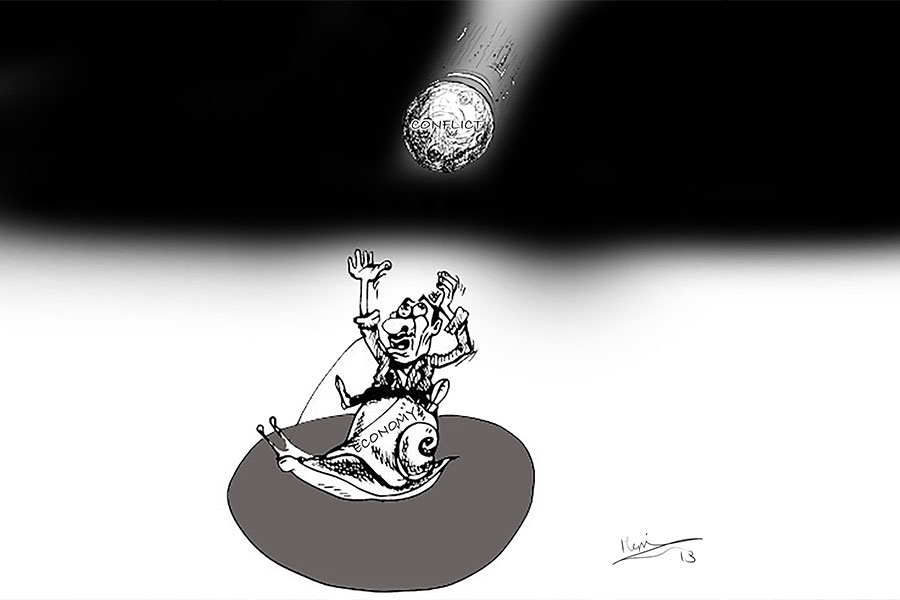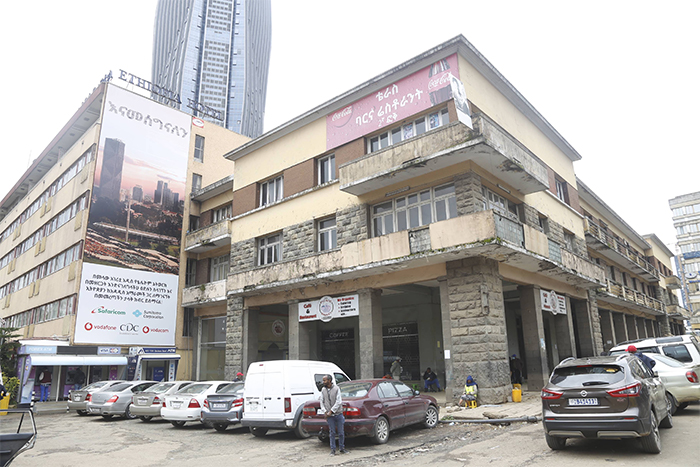
Nov 29 , 2020
By Christian Tesfaye
Once in a while, Ethiopians are flung into a moment where socio-political circumstances are upended. It is as if a new spirit descends on the land, and all we have come to understand about our condition is suddenly upended.
It is not just Ethiopians. It has been just about three decades since the fall of the Soviet Union, around the time Francis Fukuyama boldly declared the end of humankind’s “ideological evolution.” For the uninitiated, the certainty of a lasting liberal utopia was rudely interrupted in 2016, when the custodians of this tradition, the United States and Britain, themselves rejected liberalism.
For the acutely observant, the writing on the wall was evident in the same decade that Fukuyama penned “The End of History and the Last Man.” With an equal measure of certainty, Huntington argued that this could not be further from the truth. If the major fault lines of the Cold War were ideologies, the near future would be demarcated along the greatest expressions of religio-cultural groupings: “Civilisations.”
With populism on the rise and pushback against migration to the Global North, the growing assertiveness of nationalisms and religious radicalism means that we are unlucky. We are not in Fukuyama’s liberal utopia. We are caught in Huntington’s purgatory of the “clash of civilisations.” If we slip a little too far, we will find ourselves in the Nietzschean hell of nihilism.
Fortunately, there are many, on the right and on the left, that are trying to deliver us to a more certain world. Unfortunately, their ideas are often conceited, impractical, exclusionary or downright destructive.
On the right, they think our predicaments could be addressed if we live “freely,” without the imposition of taxes or government control. On the left, it must be a strong centralised government that thrusts among citizens strict political correctness and redistributes wealth at once.
Not every political difference is formed along such fault lines, but the gist is there. More worrying is that these groups take themselves seriously enough, as all movements do in their prime, that they believe that violence is a legitimate way of bringing about a political end.
In the same instance, the centre is on retreat. It is no longer fashionable to attempt to find a middle ground. It shows uncertainty, an unwillingness to move quickly and vanquish the enemy at once. The centre is what both the left and the right – here in Ethiopia as elsewhere – agree is bad for business. It is the side that advocates stability to unpredictability, political evolution to revolution and socioeconomic improvements to political overhaul.
For the left, the centre is a vestige of the patriarchy, justifying its continued existence. For the right, it is a weak link likely to be used as an instrument of a power grab by the radical left. This essentially was the argument by the two extremes of American politics against President-elect Joe Biden.
It is also true of the view attached to the centre in Ethiopia. For the "federalist" forces, those rejecting revolutions are stuck up on the old forces of feudalism, at least sympathisers of the status quo. For the "Ethiopianist" legions, a person advocating incremental change must be disloyal to the founders and the state, a suspect of indoctrination by the Left’s unceasing attack on tradition.
There is no winning here, although the opposite seems to be evident. Both tradition and change are what sustain human existence. Both are necessary to function as a society.
Tradition is what we know and how we do things. There is accumulated knowledge there. It cannot be gotten rid of at a moment’s notice when we know society is conditioned to it. The change, when it comes, should be grassroots and very well understood. It is only ironic that the left - much enamoured by the post-modernist view that nearly every sort of knowledge is a byproduct of social and historical realities - would be the one that believes something that makes up our very reality can be torn down and rebuilt rapidly.
Change too is crucial, if for no other reason than the fact that the physical world we live in is changing – climate change, technological advancement, demographic changes and depletion of resources. We are not in Kansas anymore. Here the call of the likes of Greta Thunberg, Swedish activist superstar, to take immediate action against climate change is duly admirable. The science backs her claims; the change can be implemented without creating many negative externalities and, crucially, she is not calling for a violent overthrow of governments that do not toe her politics. We can take some lessons from her activism.
The centre has become unpopular precisely because it refuses to accept the status quo but at the same time cautions against demolishing structures without a clear plan to replace them. This has become a political sin today to the unfortunate circumstance of our being.
PUBLISHED ON
Nov 29,2020 [ VOL
21 , NO
1074]


Radar | Sep 18,2022

Viewpoints | Sep 18,2021

Editorial | Nov 21,2020

Radar | Jun 14,2020

Commentaries | Sep 21,2019

Fortune News | Jul 18,2021

Radar | Oct 22,2022

Radar | Jan 09,2024

Radar | Jul 27,2025

Fortune News | Mar 14,2020

Photo Gallery | 178991 Views | May 06,2019

Photo Gallery | 169187 Views | Apr 26,2019

Photo Gallery | 160061 Views | Oct 06,2021

My Opinion | 137133 Views | Aug 14,2021
Commentaries | Oct 25,2025

Dec 22 , 2024 . By TIZITA SHEWAFERAW
Charged with transforming colossal state-owned enterprises into modern and competitiv...

Aug 18 , 2024 . By AKSAH ITALO
Although predictable Yonas Zerihun's job in the ride-hailing service is not immune to...

Jul 28 , 2024 . By TIZITA SHEWAFERAW
Unhabitual, perhaps too many, Samuel Gebreyohannes, 38, used to occasionally enjoy a couple of beers at breakfast. However, he recently swit...

Jul 13 , 2024 . By AKSAH ITALO
Investors who rely on tractors, trucks, and field vehicles for commuting, transporting commodities, and f...

Oct 25 , 2025
The regulatory machinery is on overdrive. In only two years, no fewer than 35 new pro...

Oct 18 , 2025
The political establishment, notably the ruling party and its top brass, has become p...

Oct 11 , 2025
Ladislas Farago, a roving Associated Press (AP) correspondent, arrived in Ethiopia in...

Oct 4 , 2025
Eyob Tekalegn (PhD) had been in the Governor's chair for only weeks when, on Septembe...

Oct 25 , 2025 . By YITBAREK GETACHEW
Officials of the Addis Abeba's Education Bureau have embarked on an ambitious experim...

Oct 26 , 2025 . By YITBAREK GETACHEW
The federal government is making a landmark shift in its investment incentive regime...

Oct 29 , 2025 . By NAHOM AYELE
The National Bank of Ethiopia (NBE) is preparing to issue a directive that will funda...

Oct 26 , 2025 . By SURAFEL MULUGETA
A community of booksellers shadowing the Ethiopian National Theatre has been jolted b...